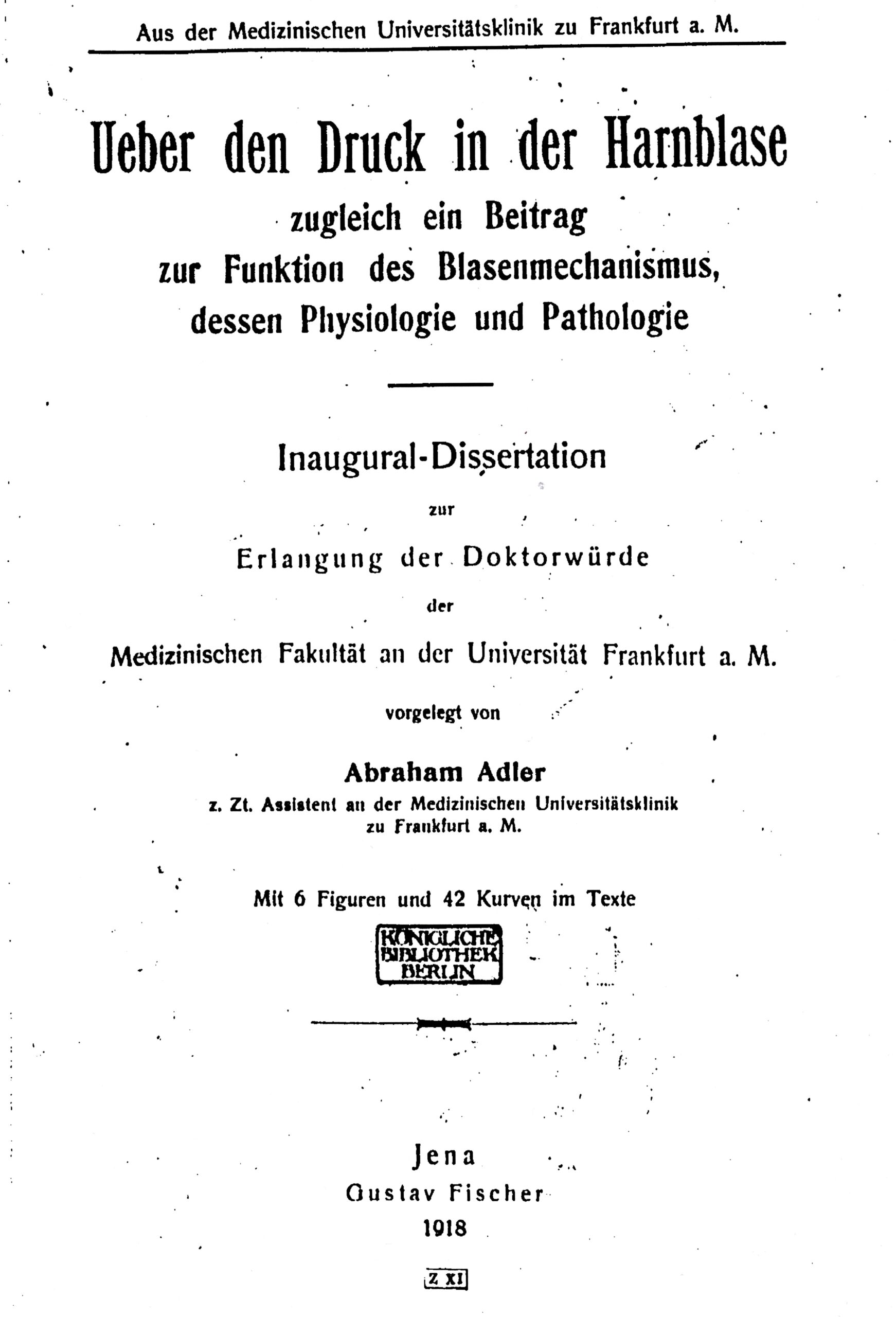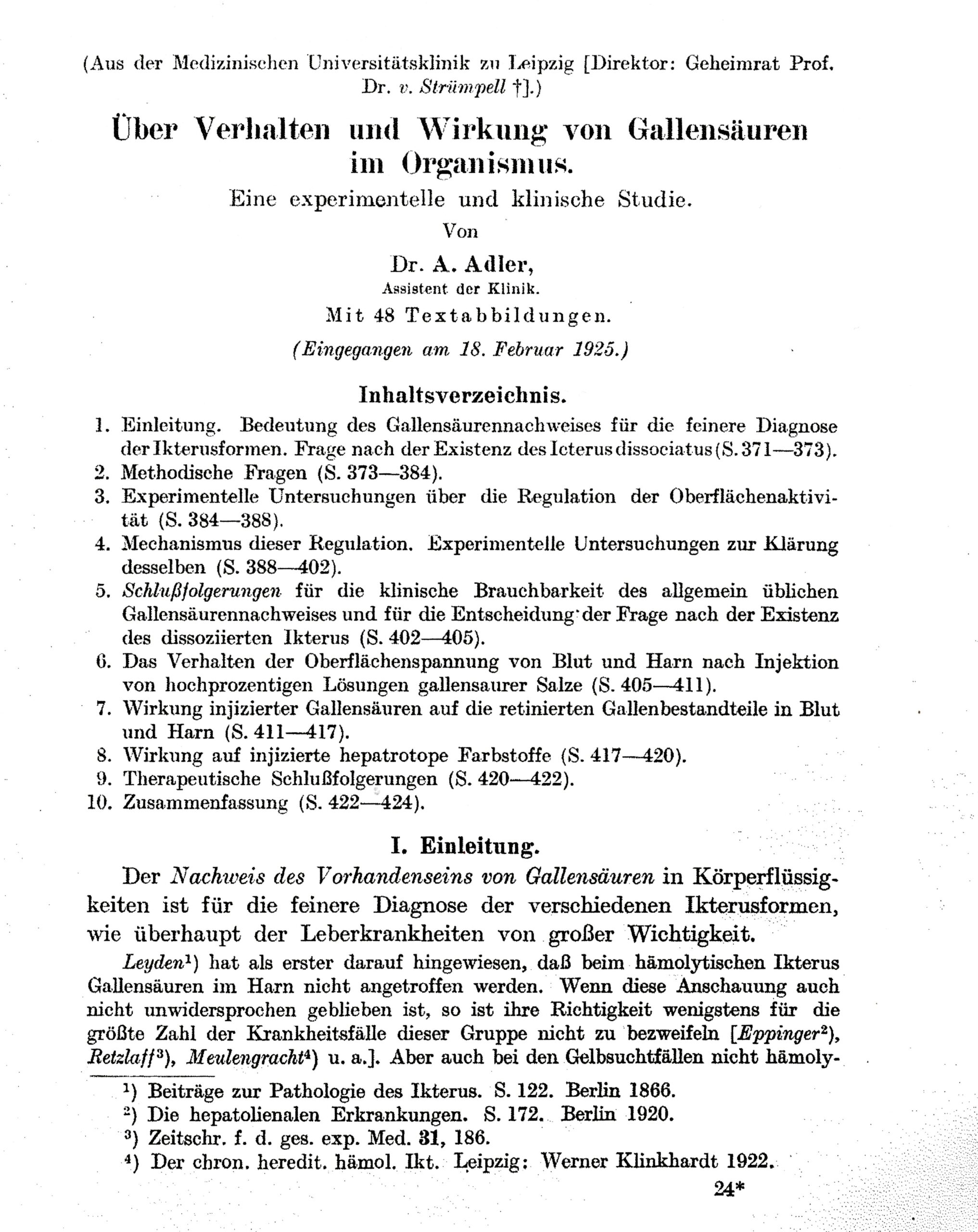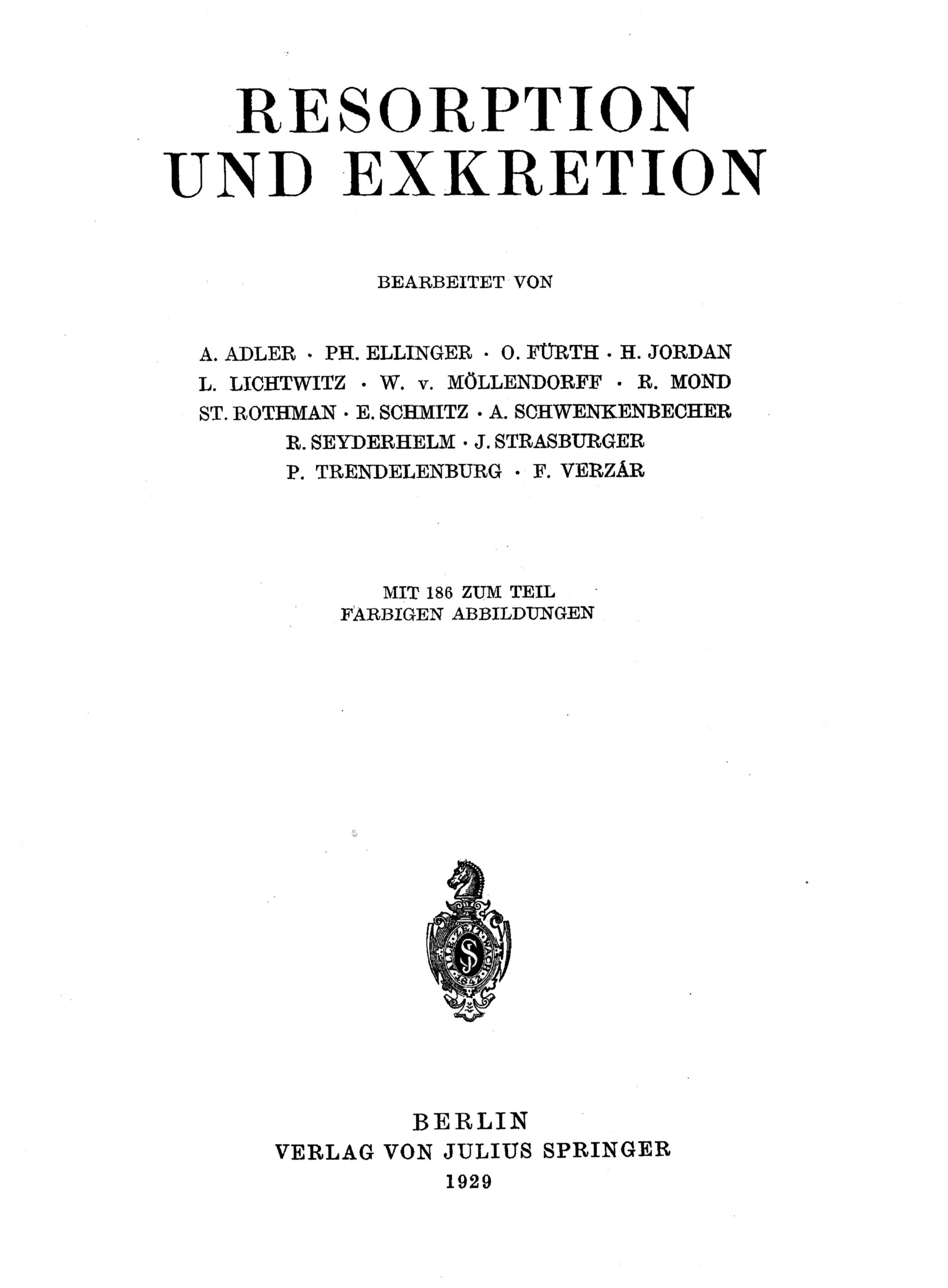Dr. med. Abraham Adler
- Hintersteinau, East Hesse Main-Kinzig district, 04.05.1891
- London, 22.08.1948
- Member since 1929
- Escaped to England in 1937
- Leipzig
- Specialist in internal medicine
“I, Abraham Adler, born on 4 May 1891 as the son of the merchant Baer Adler and his wife Fanni, née Adler from Neuhof near Fulda, obtained my school-leaving certificate at the Oberrealschule in Fulda in 1910. I first attended the Torah High School in Frankfurt am Main and then turned to studying mathematics and natural sciences. I took up my medical studies in fall 1912, passed the preliminary medical examination at the University of Heidelberg in July 1914, and joined the army as a war volunteer on the 4th day of mobilisation. I passed my state examination at the University of Frankfurt in March and April 1917. Military command transferred me to the local Reserve Hospital V, where I worked at the Medical University Clinic in the function of an assistant physician,” Abraham Adler states in the curriculum vitae of his dissertation.
Education and Places of Work
Adler was awarded his doctorate in 1918 with the thesis “Über den Druck in der Harnblase. Zugleich ein Beitrag zur Funktion des Blasenmechanismus, dessen Physiologie und Pathologie”. He had been inspired to write this thesis by the internist Heinrich I. Quincke, who, having retired from Kiel in 1908, had moved to Frankfurt, lectured as an honorary professor at the university there, and undertook scientific work at the Frankfurt Senckenberg Research Institute. Adler also received his licence to practise medicine in 1918.
Abraham Adler worked at the Medical University Clinic in Leipzig from 1920 to 30 September 1929 as an assistant physician to Adolf von Strümpell and, from 1926, to his successor Paul Morawitz. He worked on scientific issues and published during this time. His work focused on diseases of the liver and the bile ducts. He was particularly concerned with the properties of bile acids and bilirubin. He was co-author and editor, along with Leopold Lichtwitz, Julius Strasburger, the pharmacologist Paul Trendelenburg, the Hungarian physiologist Fritz Verzár, and others, of the fourth volume “Resorption und Exkretion” of the renowned ‘Handbuch der Normalen und Pathologischen Physiologie’ , edited by Albrecht Bethe, Gustav von Bergmann, Gustav Embden, and Alexander Ellinger in 1929. In this volume, Adler wrote the chapters “Die Leber als Exkretionsorgan” and “Die Herausbeförderung des Harns”.
Adler left the Leipzig Medical University Clinic on 30 September 1929 and set up his own practice as an internist at Bose Strasse 2 in Leipzig.
1933
Adler lost his licence to practise as a statutory health insurance physician and experienced the rise of anti-Semitism and the rapid disenfranchisement of Jews. He was mentioned in the list of the “Kassenärztliche Vereinigung Sachsen” (Saxon Association of Statutory Health Insurance Physicians) as a Jewish doctor without a licence in 1935.
Escape to England in 1937
Adler’s two sons Salomon and Bernhard Adler were able to find refuge in England at the beginning of 1937. Adler’s wife and their other three children also fled to England in December 1937. Abraham Adler followed a short while later. He initially worked as a research worker and “student” at Guy’s Hospital in London. He successfully completed English medical studies in Glasgow and Edinburgh, which allowed him to practise medicine. He was released from internment as an enemy alien on 11 November 1939 after the beginning of the Second World War. He subsequently had his own practice in London, specialising on liver disease.
The Nazi authorities withdrew his German citizenship on 25 January 1939. Adler’s doctorate was revoked by the Medical Faculty of the University of Frankfurt on 28 April 1939.
Abraham Adler died in London in August 1948 at the age of 57. His gravesite is located at the Adath Yisroel Cemetery Enfield, Greater London. Adler’s mother, Fanny Adler, and his sister Hedwig Friedmann, who lived in Frankfurt, arrived in the Netherlands and were imprisoned at the Westerbork camp. His mother was deported to Bergen-Belsen. She died in 1945, shortly after the liberation of the camp. His sister was deported from Westerbork to Auschwitz in February 1944, where she was murdered.
Sources and Further Reading
Sources

